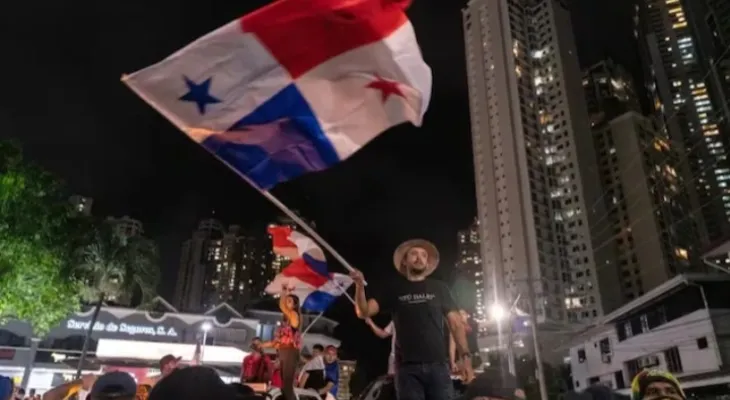Search here
Newspaper
Search here

Arab Canada News
News

Published: November 28, 2023
The Supreme Court in Panama announced on Tuesday the unconstitutionality of a 20-year concession for a Canadian copper mine that sparked weeks of protests by environmentalists and others who said it would harm a critical coastal area and threaten water supplies.
The announcement by the nine-judge court, after four days of deliberations, sparked cheers among protesters waiting outside waving Panama flags.
There was no immediate comment from Minera Panama, the local subsidiary of Canadian company First Quantum Minerals.
The dispute over the open-pit mine also led to some of the most widespread protests in Panama in recent years, including the blockade of the mine's power plant. Protesters closed parts of the Pan-American Highway, including a stretch near the Costa Rica border. Ahead of the ruling announcement, they reopened the road to allow freight trucks to pass.
Minera Panama said in a statement earlier this month that small boats blocked its port in Colon province, preventing supplies from reaching the mine. The maritime police also reported that a coal ship decided to turn back due to hostility from a group of protesters who from their boats threw stones and homemade blunt objects before being dispersed.
The protesters, a broad coalition of Panamanians, fear the mine's impact on nature, especially water supplies, as the mine employs thousands and represents three percent of Panama’s GDP.
In March, Panama's legislature reached an agreement with First Quantum allowing Minera Panama to continue operating the massive copper mine in central Panama for at least another 20 years.
The mine was temporarily closed last year when talks between the government and First Quantum over payments demanded by the government collapsed.
The contract, finally approved on October 20, allowed the subsidiary to continue operating the mine in a biologically diverse forest on the Atlantic coast west of the capital over the next twenty years, with the possibility of extending for another 20 years if the mine remained productive.
Since the protests began, the government almost passed legislation that would have canceled the contract, but it backed down in discussions held in the National Assembly on November 2. The protesters’ last hope was that Panama’s courts would declare the contract unconstitutional.
Comments